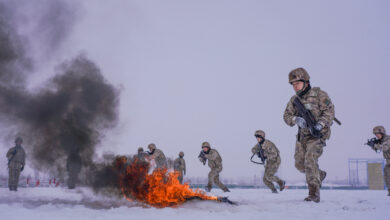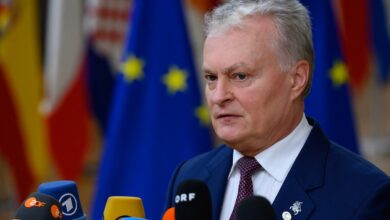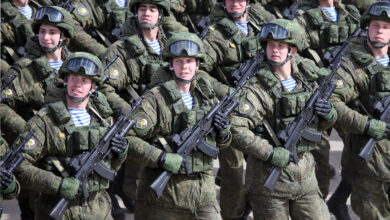Opposition groups reject Russia-backed Syrian congress, as Turkey slams PYD invite
Opposition groups on Wednesday rejected the Russia-backed Syrian Congress on National Dialogue to be held in Sochi on November 18, while Turkey said it would not accept the YPG-linked PYD’s inclusion in the talks.
The conference, previously referred to as the Congress of the Peoples of Syria, was formally suggested by Russia during talks in Astana, is set to focus on a new constitution, Reuters reported.
Speaking on Tuesday, Russian foreign minister Sergey Lavrov said the congress is “aimed at taking the next step to expand the range of Syrian participants in the settlement process by engaging representatives of tribes, as well as of ethnic and religious groups residing in the country.”
A total of 33 parties have been invited to the congress, including President Basher al-Assad’s Baath party, Syria’s official parliamentary opposition coalition the Popular Front for Change and Liberation, the rebel High Negotiations Committee and the Southern Front of the Free Syrian Army, TASS reported. Three Kurdish groups – the YPG-linked Democratic Union Party (PYD), as well as the Democratic Party of Syrian Kurdistan (KDP-S), and the Kurdish National Council (ENKS), both of which are linked to former Iraqi Kurdistan president Masoud Barzani’s KDP – were also invited.
The Syrian government said it will attend the event, and that the time is right due to military gains and the “terrorists’ obliteration”.
However, officials from some of the largest rebel and opposition groups on Wednesday rejected the congress, saying talks should only be held under U.N. auspices in Geneva, where talks are due to restart on November 28.
Mohammad Alloush, a member of the opposition High Negotiations Committee and a political leader of the Saudi-backed Islamist rebel group Jaish al-Islam, said the congress would be meeting “between the regime and the regime.” Expressing surprise at the HNC’s invitation, Alloush told Reuters the group would “issue a statement with other parties setting out the general position rejecting this conference.”
Ahmad Ramadan, a spokesman for the Syrian National Coalition opposition group told Reuters the SNC “will not participate in any negotiations with the regime outside Geneva or without UN sponsorship.” According to Reuters, the SNC said the congress was an attempt to circumvent “the international desire for political transition” in Syria.
Fateh Hassoun, who headed the Syrian opposition military delegation to Astana, described the congress as a “Russian deception,” Al Jazeera reported. “We don’t trust the Russians because they are part of the war and they are fighting on behalf of the regime on the ground,” Hassoun said.
Turkey will not accept PYD inclusion
Middle East Eye reported that the PYD was invited to the congress during meetings with Russian officials in northern Syria in October.
While not confirming the party’s attendance, new PYD co-leader Shahoz Hassan told Reuters on Wednesday that the PYD would advocate for its decentralized model for Syria. “We are discussing it and the majority view is to attend,” Hassan said. “We tabled the democratic federal solution in mid-March of 2016, and without it there are no solutions but only rendering the Syrian crisis permanent,” he added.
Turkey strongly objected to the PYD’s invitation. Presidential spokesman Ibrahim Kalin said Turkish and Russian officials had discussed the issue and that he had held his own meetings to “solve the problem on the spot”.
“We do not see any problems in inviting Kurds who are not from PYD/YPG, but PYD/YPG is a terrorist organization. We will not accept inclusion of a terrorist group into a platform like Astana,” Kalin said.
Turkey sees the PYD and its YPG armed wing as extensions of the Kurdistan Workers’ Party (PKK) which has waged a three-decade insurgency in south-eastern Turkey. However, the YPG is the backbone of the U.S.-led Coalition-backed Syrian Democratic Forces fighting Islamic State in the east of the country.
On Monday, Turkish president Recep Tayyip Erdogan reiterated that Turkey’s focus is on securing its southern border with YPG and SDF-controlled territory.
“Turkey will categorically not allow the creation of a terrorist corridor on its southern borders,” Erdogan said.












